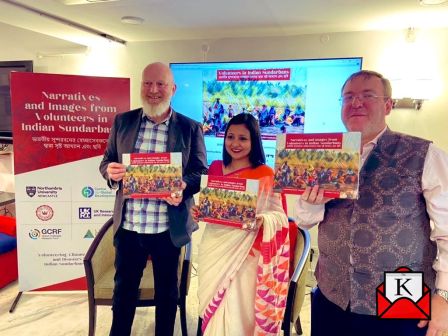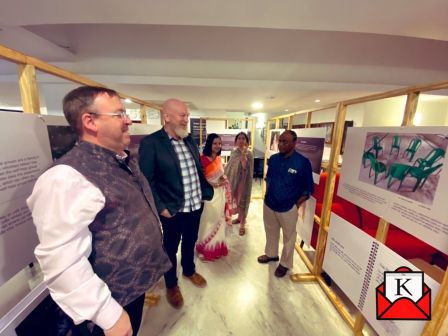Photography Exhibition On Voluntary Work In The Indian Sundarbans


The British Deputy High Commission held a photographic exhibition and the book launch of a multilingual photobook that presented study findings on how volunteer effort might help address climate change concerns in the Indian Sundarbans.
The research and photo exhibition, which focuses on the voluntary labor of underprivileged populations, contradicts the conventional narrative of volunteering by affluent individuals. Although this effort is frequently overlooked, it plays a vital role in the lives of many people and in the ways that communities in the Sundarbans are adapting to climate change.
The research has been conducted as part of Living Deltas, a transdisciplinary research Hub funded by the UK Government’s Research and Innovation Fund and Global Challenges Research Fund.
The research team is led by Professor Matt Baillie Smith (Northumbria University, UK) and Sumana Banerjee (Jadavpur University, India).
Through the use of participatory techniques, including photography and diary writing, they gave the voices and experiences of Sundarbans community members priority. This offers distinctive and significant insights into the attitudes and practices of volunteer engagement among those community members.
Images and journal entries written by Sundarbans residents are shared in the book and exhibition, highlighting the importance of volunteerism in helping communities prepare for and respond to climate-related disasters as well as preserving the area’s fragile ecosystem. They demonstrate how it may be used to question social norms and is essential for preserving and safeguarding infrastructure, such as embankments. However, they also demonstrate that there are difficulties in this line of employment.
The book and exhibition advocate for acknowledging the value of underprivileged populations’ volunteer labor in addressing the problems posed by the climate crisis. They also hope to bring about change by developing volunteer mobilization strategies that are more equitable and inclusive.
Priyanka Dutta
